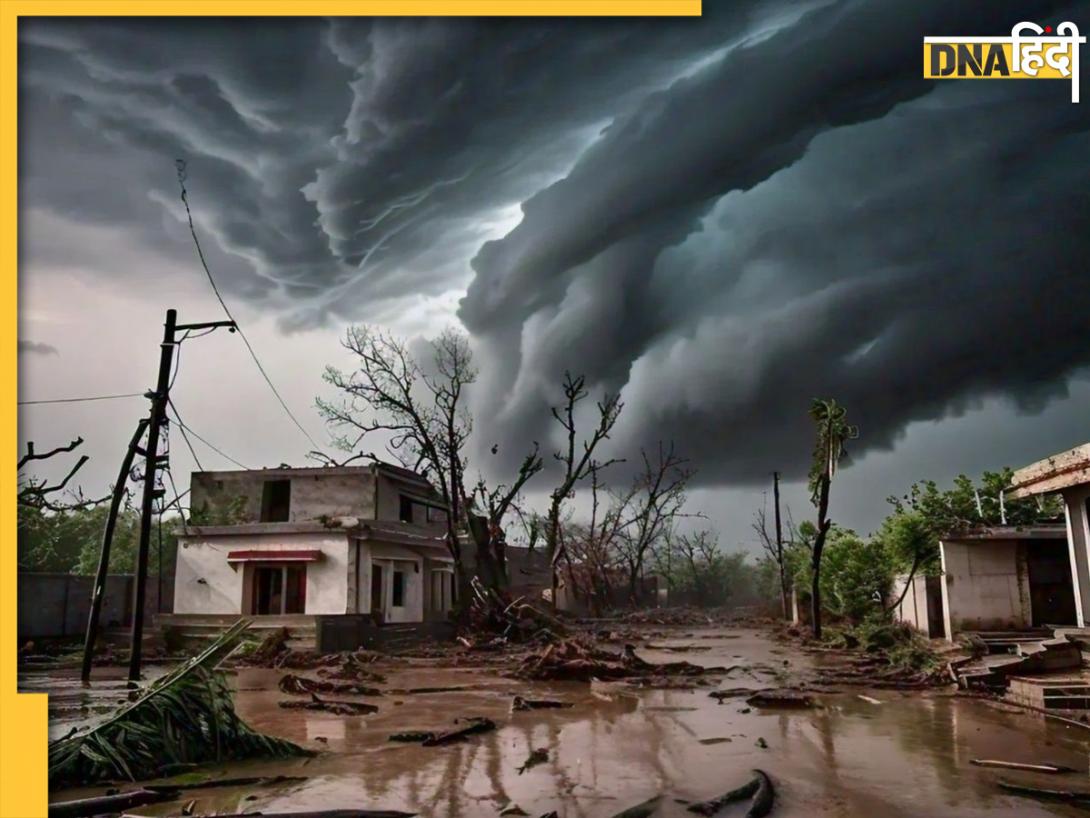The U. S. House of Representatives overwhelmingly voted to impose new sanctions on Moscow, triggering an angry reaction from Russian officials, but analysts are playing down the impact.
The U.S. House of Representatives overwhelmingly voted to impose new sanctions on Moscow, triggering an angry reaction from Russian officials, but analysts are playing down the impact.
The sanctions, which have yet to be approved by the U.S. Senate and President Donald Trump, expand and tweak a list of existing sanctions, but cannot be viewed as a game changer, analysts said.
Russian President Vladimir Putin will decide if and how Moscow will retaliate once the fresh sanctions become law.
Below are highlights from the bill and analysts' reactions:
ON REASON FOR SANCTIONS
The United States "should continue to uphold and seek unity with European and other key partners on sanctions implemented against the Russian Federation, which have been effective and instrumental in countering Russian aggression in Ukraine".
ON RUSSIAN DEBT
"The Secretary of the Treasury shall submit ... a report describing in detail the potential effects of expanding sanctions ... to include sovereign debt and the full range of derivative products."
The Secretary of the Treasury shall review sanctions from 2014 "to ensure that the directive prohibits the conduct by United States persons or persons within the United States of all transactions in, provision of financing for, and other dealings in new debt of longer than 14 days maturity or new equity of persons determined to be subject to the directive, their property, or their interests in property".
ON PARTICULAR AREAS, INDIVIDUALS
"The Secretary of the Treasury may determine that a person meets one or more of the criteria ... if that person is a state-owned entity operating in the railway, or metals and mining sector of the economy of the Russian Federation."
The Secretary of the Treasury, in consultation with the Director of National Intelligence and the Secretary of State, shall submit a detailed report on Russia's senior foreign political figures and oligarchs.
ON ENERGY PROJECTS
The bill is designed "to continue to oppose the NordStream 2 pipeline given its detrimental impacts on the European Union's energy security, gas market development in Central and Eastern Europe, and energy reforms in Ukraine".
Trump, in coordination with allies of the United States, may impose sanctions on an entity that makes an investment described in the Act or "sells, leases, or provides to the Russian Federation, for the construction of Russian energy export pipelines, goods, services, technology, information, or support ... any of which has a fair market value of $1,000,000 or more; or that, during a 12-month period, have an aggregate fair market value of $5,000,000 or more."
ANALYST VIEWS
"With the Senate voting 92-2 and the House 419-3, it is highly unlikely that President Trump would veto the bill," said Charles Robertson, Global Chief Economist at Renaissance Capital in London.
"Long term this is really bad news. We know from Jackson-Vaneck that these kind of sanctions are hard to remove once in place. This will further stall foreign investment into Russia, negatively impacting growth and development, furthering long-term capital flight and brain drain. It will further the isolation from the West, and stagnation of the Russian economy," said Tim Ash, a Senior Strategist at BlueBay Asset Management in London.
"Most importantly for Russia, the original Senate bill with regard to Nord Stream 2 was watered down as it now requires coordination with 'allies' when imposing such sanctions. Moreover, the bill only gives the option for the president to introduce such sanctions, but does not require that he does so. So, overall, I expect marginal negative effect," Ivan Tchakarov, senior economist at Citi in Moscow.
"In general we think that the impact on the Russian economy should be relatively limited. Compared to 2014 when the first set of sanctions was introduced the Russian economy is in much better state to weather the measures," said Liza Ermolenko, emerging European economist at Barclays in London.
"In the U.S. sanctions bill we have not seen any direct negative implications for the rouble so far. Some tightening of the trade financing terms would not have a material negative impact on the rouble, although it may lead to a shortage of the dollar liquidity in the market and it's not clear how well companies and banks were prepared to this," said Alexey Pogorelov, chief economist at Credit Suisse in London.
(This article has not been edited by DNA's editorial team and is auto-generated from an agency feed.)
![submenu-img]() Ganesh Chaturthi 2024 shubh muhurat: Check city wise puja timings, visarjan date, and bhog for Ganpati Bappa
Ganesh Chaturthi 2024 shubh muhurat: Check city wise puja timings, visarjan date, and bhog for Ganpati Bappa![submenu-img]() 'Leaders in Delhi never liked me…’ Omar Abdullah alleges poll 'conspiracy'
'Leaders in Delhi never liked me…’ Omar Abdullah alleges poll 'conspiracy'![submenu-img]() Boney Kapoor announces new film, its title has a Mr India connect: 'Probably by December we...'
Boney Kapoor announces new film, its title has a Mr India connect: 'Probably by December we...'![submenu-img]() Meet actress, who worked for 17 hours straight on toxic sets, her mental health was affected, left industry, is now...
Meet actress, who worked for 17 hours straight on toxic sets, her mental health was affected, left industry, is now...![submenu-img]() Over 200 Patients celebrate freedom from diabetes in Madhavbaug's nationwide campaign 'Azadi Diabetes Se'
Over 200 Patients celebrate freedom from diabetes in Madhavbaug's nationwide campaign 'Azadi Diabetes Se'![submenu-img]() Aparajita Bill पर ममता बनर्जी को झटका, राज्यपाल ने कमियां गिना राष्ट्रपति के पास भेजा
Aparajita Bill पर ममता बनर्जी को झटका, राज्यपाल ने कमियां गिना राष्ट्रपति के पास भेजा![submenu-img]() Haryana Assembly Election 2024: हरियाणा में कांग्रेस प्रत्याशियों की पहली लिस्ट जारी, इस सीट से चुनावी मैदान में उतरी विनेश फोगाट
Haryana Assembly Election 2024: हरियाणा में कांग्रेस प्रत्याशियों की पहली लिस्ट जारी, इस सीट से चुनावी मैदान में उतरी विनेश फोगाट![submenu-img]() Hathras Accident: यूपी के हाथरस में बड़ा सड़क हादसा, 15 लोगों की मौत, कई घायल
Hathras Accident: यूपी के हाथरस में बड़ा सड़क हादसा, 15 लोगों की मौत, कई घायल![submenu-img]() Viral Video: Indigo की फ्लाइट में बंद हो गया एसी, गर्मी से परेशान यात्री हो गए बेहोश
Viral Video: Indigo की फ्लाइट में बंद हो गया एसी, गर्मी से परेशान यात्री हो गए बेहोश ![submenu-img]() Weather Alert: महाराष्ट्र-गुजरात में जोरदार बारिश, आंध्र-तेलंगाना में बाढ़, जानें दिल्ली-एनसीआर के लिए क्या है अलर्ट
Weather Alert: महाराष्ट्र-गुजरात में जोरदार बारिश, आंध्र-तेलंगाना में बाढ़, जानें दिल्ली-एनसीआर के लिए क्या है अलर्ट![submenu-img]() DNA Auto Awards 2024: Maruti Suzuki Swift nominated for ‘CAR OF THE YEAR’; check price, features
DNA Auto Awards 2024: Maruti Suzuki Swift nominated for ‘CAR OF THE YEAR’; check price, features![submenu-img]() DNA Auto Awards 2024: Hyundai Alcazar Facelift nominated for ‘CAR OF THE YEAR’; check details
DNA Auto Awards 2024: Hyundai Alcazar Facelift nominated for ‘CAR OF THE YEAR’; check details![submenu-img]() Hyundai Creta Knight Edition launched in India: Check price, features, design
Hyundai Creta Knight Edition launched in India: Check price, features, design![submenu-img]() DNA Auto Awards 2024: Citroen Basalt nominated for ‘CAR OF THE YEAR’; check price, features
DNA Auto Awards 2024: Citroen Basalt nominated for ‘CAR OF THE YEAR’; check price, features![submenu-img]() DNA Auto Awards 2024: Tata Curvv nominated for ‘CAR OF THE YEAR’; check price, features
DNA Auto Awards 2024: Tata Curvv nominated for ‘CAR OF THE YEAR’; check price, features![submenu-img]() UPSC topper IAS Shruti Sharma's marksheet goes viral on social media, check her scores in different subjects
UPSC topper IAS Shruti Sharma's marksheet goes viral on social media, check her scores in different subjects![submenu-img]() Meet man, who lost his mother in childhood, worked as milk seller, cracked NEET exam with AIR...
Meet man, who lost his mother in childhood, worked as milk seller, cracked NEET exam with AIR...![submenu-img]() Meet man who failed 35 exams, cracked UPSC exam twice, first became IPS then quit due to...
Meet man who failed 35 exams, cracked UPSC exam twice, first became IPS then quit due to...![submenu-img]() Meet man, who was forced into child marriage at 11, cracked NEET exam with AIR...
Meet man, who was forced into child marriage at 11, cracked NEET exam with AIR...![submenu-img]() Meet woman who cracked UPSC exam in first attempt without coaching at 22, got AIR 31, she is now posted as…
Meet woman who cracked UPSC exam in first attempt without coaching at 22, got AIR 31, she is now posted as…![submenu-img]() Mumbai: Fire Breaks Out At Times Tower In Mumbai, 9 Fire Units Deployed
Mumbai: Fire Breaks Out At Times Tower In Mumbai, 9 Fire Units Deployed![submenu-img]() 'Dharavi Project Is About Restoring Dignity...', Says Gautam Adani | Dharavi Redevelopment Project
'Dharavi Project Is About Restoring Dignity...', Says Gautam Adani | Dharavi Redevelopment Project![submenu-img]() Kolkata Doctor Case: CBI Visits RG Kar, Seizes Documents On Funds Used During Sandip Ghosh’s Tenure
Kolkata Doctor Case: CBI Visits RG Kar, Seizes Documents On Funds Used During Sandip Ghosh’s Tenure![submenu-img]() Giriraj Singh Attacked: Union Minister Giriraj Singh Assaulted In Begusarai, Bihar; Accused Arrested
Giriraj Singh Attacked: Union Minister Giriraj Singh Assaulted In Begusarai, Bihar; Accused Arrested![submenu-img]() Haryana Assembly Election 2024: Haryana Assembly Election Date Changed, Check Details Here
Haryana Assembly Election 2024: Haryana Assembly Election Date Changed, Check Details Here![submenu-img]() Mukesh Ambani set to challenge Adani, ITC with his Rs 3900 crore plan for...
Mukesh Ambani set to challenge Adani, ITC with his Rs 3900 crore plan for...![submenu-img]() NPCI launches 'UPI circle', check what it is and how it works
NPCI launches 'UPI circle', check what it is and how it works![submenu-img]() Mukesh Ambani's Reliance Jio to give tough competition to BSNL with this plan, it offers 5G data at just Rs...
Mukesh Ambani's Reliance Jio to give tough competition to BSNL with this plan, it offers 5G data at just Rs...![submenu-img]() This company repays Rs 20000 crore debt for... and it has a Ratan Tata connection
This company repays Rs 20000 crore debt for... and it has a Ratan Tata connection![submenu-img]() Meet woman, billionaire's daughter, who studied in London, now leads Rs 1124 crore company as...
Meet woman, billionaire's daughter, who studied in London, now leads Rs 1124 crore company as...![submenu-img]() From Cristiano Ronaldo to Virat Kohli: List of highest-paid athletes in last 12 months
From Cristiano Ronaldo to Virat Kohli: List of highest-paid athletes in last 12 months![submenu-img]() Meet actor who worked as waiter, sold tea, namkeen for 14 years, debuted in Bollywood at 42; now his net worth is...
Meet actor who worked as waiter, sold tea, namkeen for 14 years, debuted in Bollywood at 42; now his net worth is...![submenu-img]() Parents-to-be Deepika Padukone, Ranveer Singh seek blessings at Siddhivinayak with families days before baby's arrival
Parents-to-be Deepika Padukone, Ranveer Singh seek blessings at Siddhivinayak with families days before baby's arrival![submenu-img]() Gout remedies: 7 natural ways to lower uric acid levels in the body
Gout remedies: 7 natural ways to lower uric acid levels in the body ![submenu-img]() Active players with most centuries in international cricket
Active players with most centuries in international cricket ![submenu-img]() 'Leaders in Delhi never liked me…’ Omar Abdullah alleges poll 'conspiracy'
'Leaders in Delhi never liked me…’ Omar Abdullah alleges poll 'conspiracy'![submenu-img]() Over 200 Patients celebrate freedom from diabetes in Madhavbaug's nationwide campaign 'Azadi Diabetes Se'
Over 200 Patients celebrate freedom from diabetes in Madhavbaug's nationwide campaign 'Azadi Diabetes Se'![submenu-img]() 'When we were dragged on roads...': Wrestler Vinesh Phogat slams BJP
'When we were dragged on roads...': Wrestler Vinesh Phogat slams BJP![submenu-img]() India emerges as second-largest global 5G smartphone market, overtakes...
India emerges as second-largest global 5G smartphone market, overtakes...![submenu-img]() Union Home Minister Amit Shah releases BJP manifesto for J&K assembly elections
Union Home Minister Amit Shah releases BJP manifesto for J&K assembly elections













































)
)
)
)
)
)
)
)
)
)
)
)
)
)





)
)
)
)
)
)